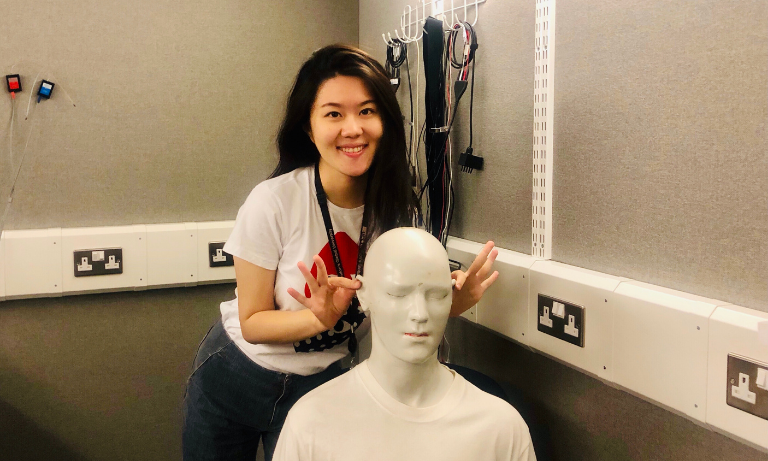Zhizhao Jiang - MSc in Language Sciences

Current job title: PhD candidate
Current employer: Max Planck Institute for Human Cognitive and Brain Sciences
Who did you find inspiring at UCL and why?
Prof. Joseph Devlin, lecturer of the module ‘Designing and Analysing fMRI Experiments’. He is really experienced in both the neuroimaging and the language field and helped me a great lot with fMRI analyses. His module and research inspired me to explore more in the language area using fMRI in my doctoral study. I feel very grateful and fortunate that Joe is now the external advisor on my current doctoral project.
What is your fondest memory of your time here?
Collecting fNIRS data for my master thesis project in summer 2019. Although data collection could sometimes be tiring, but teamwork helped me grow both personally and as a group.
Tell us a bit about the work you’re doing now.
I am pursuing a PhD at Max Planck Institute for Human Cognitive and Brain Sciences in Leipzig, Germany. My main research interest lies in exploring plasticity of the neural network for language with neuroimaging. Currently, I am working with Prof. Dorothee Saur and Dr. Gesa Hartwigsen on investigating the changes in effective connectivity in the language and multiple-demand network after left temporo-parietal and frontal stroke.
How did your UCL degree help you get to where you are now?
During my MSc programme, I took both theoretical (linguistics, neuroscience, cognitive psychology) and practical (fMRI, statistics, dissertation) modules. The unique combination of modules provided me with an excellent set of skills and knowledge to undertake doctoral research.
What have been your career highlights?
One highlight is being admitted as PhD student to Max Planck Institute for Human Cognitive and Brain Sciences. The institute is the best place I could imagine for my doctoral research. Another highlight would be receiving doctoral scholarship from the German Academic Scholarship Foundation. The foundation is Germany's largest and most prestigious scholarship foundation and awards scholarships to fewer than 0.5% of German students.
What would be your advice for current students?
Explore London more: go to museums and exhibitions, watch musicals and plays, walk or jog along the Thames…
Explore UCL more: join clubs and societies, network with people from various backgrounds, go to talks and seminars…
 Close
Close

